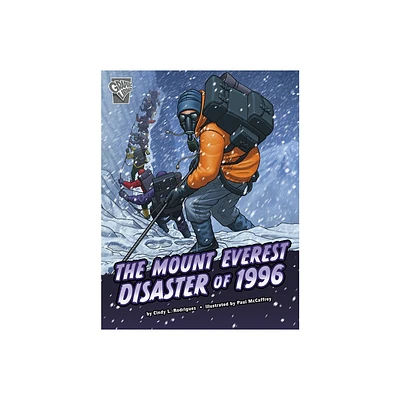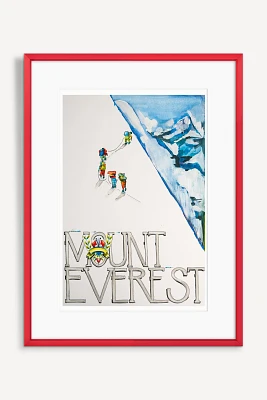Home
Everest 1951: The Mount Reconnaissance Expedition 1951
Loading Inventory...
Barnes and Noble
Everest 1951: The Mount Reconnaissance Expedition 1951
Current price: $17.95


Barnes and Noble
Everest 1951: The Mount Reconnaissance Expedition 1951
Current price: $17.95
Loading Inventory...
Size: Paperback
*Product Information may vary - to confirm product availability, pricing, and additional information please contact Barnes and Noble
In 1953,
Edmund Hillary
and
Tenzing Norgay
reached the summit of
Mount Everest
. They climbed from the south, from Nepal, via the Khumbu Glacier – a route first pioneered in 1951 by a reconnaissance expedition led by
Eric Shipton
.
Everest 1951
is the account of this expedition.
It was the first to approach the mountain from the south side, it pioneered a route through the Khumbu icefall and it was the expedition on which Hillary set foot on Everest for the first time.
is a short but vitally important read for anybody with any interest in mountaineering or in Everest. The 1951 Everest Expedition marked the public highpoint of Shipton's mountaineering fame. Key information was discovered and the foundations laid for future success. Despite this, Shipton's critics felt he had a 'lack of trust' and thus failed to match the urgent mood of the period.
Despite having been on more Everest expeditions than any man alive, he was 'eased' out of the crucial leadership role in 1953 and so missed the huge public acclaim given to Hillary, Tenzing Norgay and
John Hunt
after their historic success.
Edmund Hillary
and
Tenzing Norgay
reached the summit of
Mount Everest
. They climbed from the south, from Nepal, via the Khumbu Glacier – a route first pioneered in 1951 by a reconnaissance expedition led by
Eric Shipton
.
Everest 1951
is the account of this expedition.
It was the first to approach the mountain from the south side, it pioneered a route through the Khumbu icefall and it was the expedition on which Hillary set foot on Everest for the first time.
is a short but vitally important read for anybody with any interest in mountaineering or in Everest. The 1951 Everest Expedition marked the public highpoint of Shipton's mountaineering fame. Key information was discovered and the foundations laid for future success. Despite this, Shipton's critics felt he had a 'lack of trust' and thus failed to match the urgent mood of the period.
Despite having been on more Everest expeditions than any man alive, he was 'eased' out of the crucial leadership role in 1953 and so missed the huge public acclaim given to Hillary, Tenzing Norgay and
John Hunt
after their historic success.


















